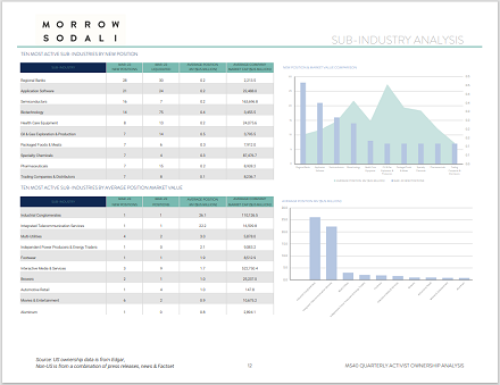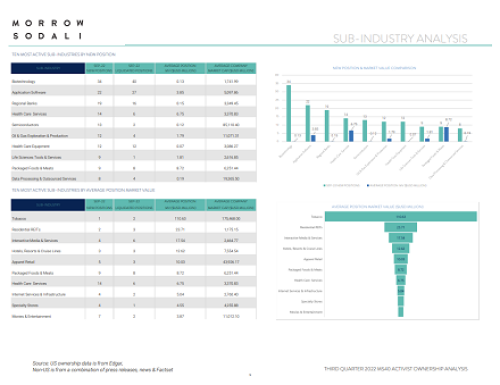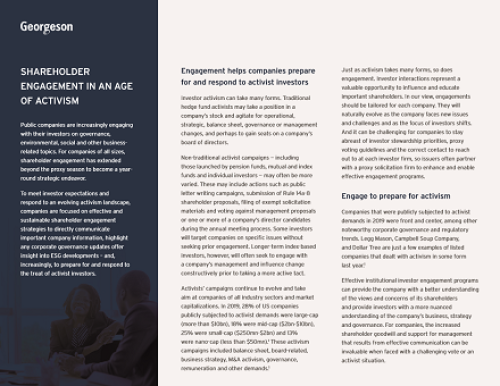The Association of BellTel Retirees has put forward two pay-related proposals for votes at Verizon’s annual meeting on May 3. The first is aimed at beefing up the company’s provisions for clawing back earnings ‘from executives whose conduct harms shareholders,’ the group says. The second seeks to ‘prohibit above-market earnings for senior executives on certain retirement and deferred income accounts,’ according to a statement announcing the proposals.
The activist retirees of BellTel advocate for more than 205,000 union and management retirees from a group of telecoms companies including Bell Atlantic, GTE, Idearc and Verizon, as well as active employees, regarding retiree issues. Jack Brennan, BellTel president and a former Bell System employee of 38 years, tells IR Magazine that with 74 percent of its 134,000 members being shareowners, it is ‘highly invested in the future of Verizon.’
Yahoo-savior Verizon ties a ‘vast majority of senior executive compensation to financial performance,’ according to the BellTel release, making it ‘necessary to disincentivize harmful actions that favor short-term gain at the expense of reputation or long-term interests.’
Brennan says the clawback proposal is about putting the focus on long-term strategies. ‘The most important practice [for] ensuring the interests of executives are aligned with the interests of shareholders is promoting the long-term financial health and shareholder value of the company,’ he says. ‘We support pay that is commensurate with the company’s performance, but sometimes the link between pay and performance is hard to discern.’
Specifically, the proposal urges the board to strengthen the company’s compensation clawback policies, as applied to senior executive officers, to state that they can be triggered by ‘conduct’ – rather than by ‘willful misconduct.’
‘We view a clawback policy that is limited to willful misconduct, and that does not require disclosure to shareholders, as too narrow,’ the proposal states. ‘Although incentive compensation may be clawed back due to gross negligence, this is limited to financial harm so large it results in a material restatement of financial results. We are also concerned a willful misconduct standard may be too vague to ever be applied.’
Responding to a request for comment, Verizon directed IR Magazine to the board’s recommendations against each proposal.
Regarding the first proposal, Verizon counters that: ‘[The] board of directors believes a clawback policy that does not take into account personal culpability is inappropriate because it would potentially allow for a clawback of compensation for legitimate business decisions that subsequently come under scrutiny.
‘By seeking to disregard personal culpability, the proposal could discourage senior executives from exercising the business judgment necessary to deliver shareholder value. The board also believes mandating disclosure of its deliberations is inappropriate because it would deprive the board of the ability to exercise judgment and discretion with respect to the disclosure of potentially sensitive information.’
BellTel has a history of driving change at Verizon, having submitted proposals on issues ranging from severance pay to board composition, proxy access and the separation of the chair and CEO roles. It has defeated the telecoms company 11 times since 1998, ‘three by majority shareholder vote and eight negotiated off the ballot,’ according to BellTel.
Brennan recognizes that success can take time, though. ‘The shareholder resolution process is a means [for] shareholders as a whole to have a dialogue with a company,’ he tells IR Magazine. ‘Sometimes it may take several years of voting on a proposal before it achieves a majority vote by shareholders, and sometimes even if we do not get a majority vote, the company may be willing to make some changes on its own.’
Above-market earnings
BellTel’s second proposal relates to Verizon’s practice of granting above-market earnings ‘on the multi-million-dollar balances in non-qualified senior executive retirement accounts,’ the group’s release states. ‘Above-market earnings are not performance-based and fail to align management incentives with long-term shareholder interests.’
This is an issue BellTel says ISS also flagged last year, quoting the proxy adviser as stating that ‘this non-performance-based benefit creates additional costs to shareholders.’ According to BellTel, ISS further noted that the payment of ‘above-market or preferential earnings to executives… increases the ultimate expense of the plan to shareholders and is not considered a best practice.’
Verizon says it ‘strongly opposes this proposal’, which it argues ‘fundamentally misrepresents the investment returns paid to participants in Verizon’s executive deferral plan.
‘The proponent’s claim that Verizon pays senior executives an above-market rate of return on their account balances in the deferral plan is just plain wrong,’ continues the company, detailing its opinion that ‘none of the 28 hypothetical investment options offered under the deferral plan pay a premium above what can be earned in the market.’
Changing governance attitudes
The Association of BellTel Retirees was founded by several NYNEX retirees in 1996 with the goal of restoring pension increases that helped fight inflation. Since then, BellTel has grown to a 134,000-strong group of retiree activists. Brennan says attitudes toward executive compensation have changed with a growing number of institutions showing an interest in governance issues.
‘General awareness about the excesses of executive compensation at certain corporations has grown, whether due to some of the scandals we’ve seen in boardrooms or because attitudes have changed, and we feel we will only gain more traction on these issues,’ he says.
He also offers some advice to corporates facing a proxy proposal: ‘Listen to your shareholders. Remember who owns the company, and act in their long-term interests. Good governance promotes good long-term results.’










